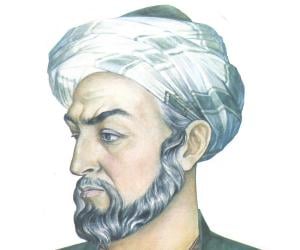![I [prefer] a short life with width to a narrow one with length.](https://quotes.thefamouspeople.com/images/quotes/avicenna-101701.jpg)
I [prefer] a short life with width to a narrow one with length.

As to the mental essence, we find it in infants devoid of every mental form.
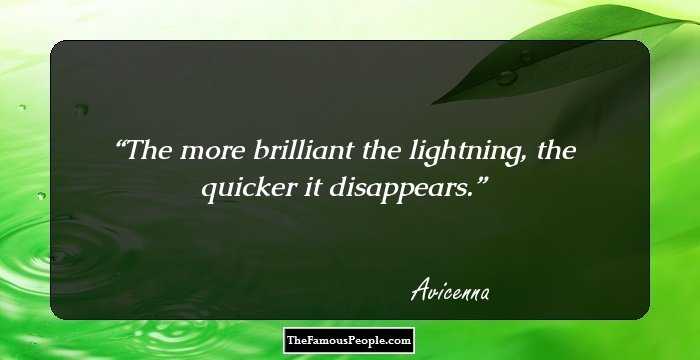
The more brilliant the lightning, the quicker it disappears.

That whose existence is necessary must necessarily be one essence.
Prayer is that which enables the soul to realize its divinity. Through prayer human beings worship absolute truth, and seek an eternal reward. Prayer is the foundation-stone of religion; and religion is the means by which the soul is purified of all that pollutes it. Prayer is the worship of the first cause of all things, the supreme ruler of all the world, the source of all strength. Prayer is the adoration of the one whose being is necessary.

In God alone, essence (what He is) and existence (that he is) coincide.

Those who deny the first principle should be flogged or burned until they admit that it is not the same thing to be burned and not burned, or whipped and not whipped.
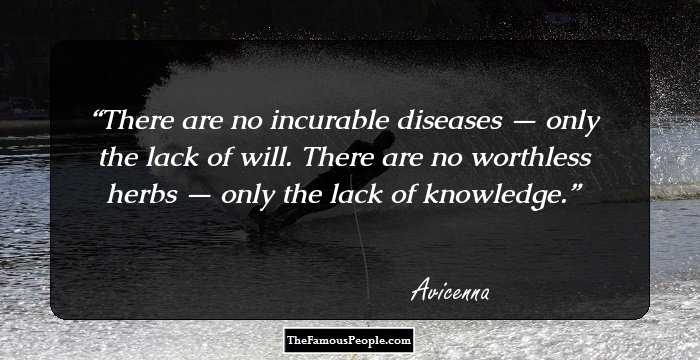
There are no incurable diseases — only the lack of will. There are no worthless herbs — only the lack of knowledge.

It is in the nature of water ... to become transformed into earth through a predominating earthy virtue; ... it is in the nature of earth to become transformed into water through a predominating aqueous virtue.

When you do not know the nature of the malady, leave it to nature; do not strive to hasten matters. For either nature will bring about the cure or it will itself reveal clearly what the malady really is.
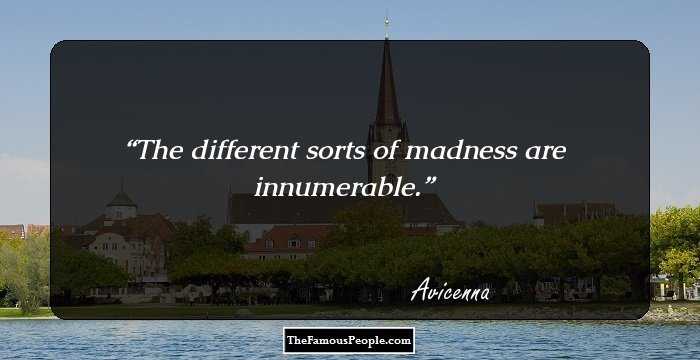
The different sorts of madness are innumerable.
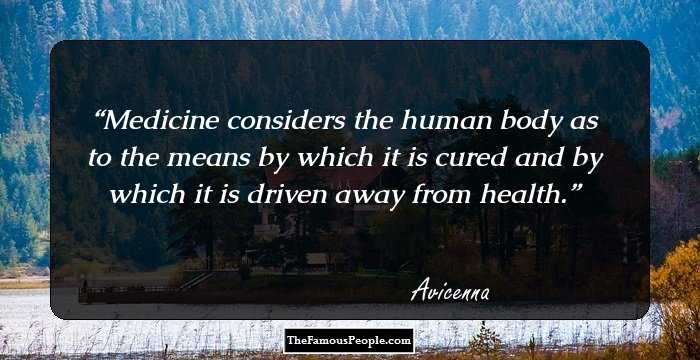
Medicine considers the human body as to the means by which it is cured and by which it is driven away from health.

Width of life is more important than length of life.
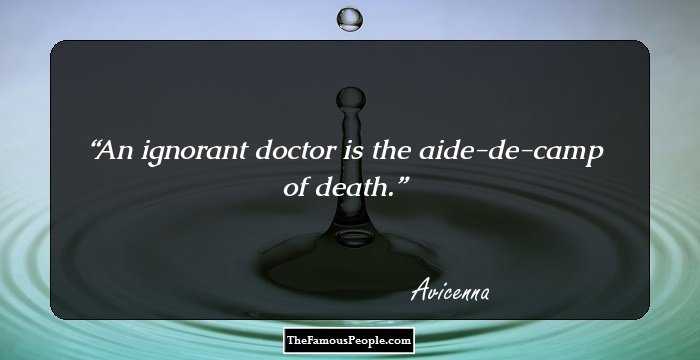
An ignorant doctor is the aide-de-camp of death.
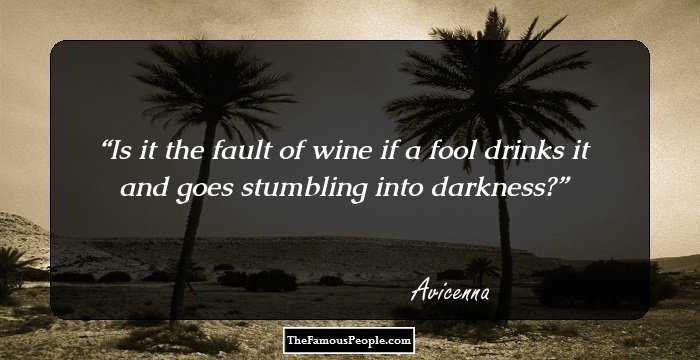
Is it the fault of wine if a fool drinks it and goes stumbling into darkness?

The world is divided into men who have wit and no religion and men who have religion and no wit.
God, the supreme being, is neither circumscribed by space, nor touched by time; he cannot be found in a particular direction, and his essence cannot change. The secret conversation is thus entirely spiritual; it is a direct encounter between God and the soul, abstracted from all material constraints.

The knowledge of anything, since all things have causes, is not acquired or complete unless it is known by its causes.
Medicine is the science by which we learn the various states of the human body in health and when not in health, and the means by which health is likely to be lost and, when lost, is likely to be restored back to health. In other words, it is the art whereby health is conserved and the art whereby it is restored after being lost. While some divide medicine into a theoretical and a practical [applied] science, others may assume that it is only theoretical because they see it as a pure science. But, in truth, every science has both a theoretical and a practical side.
Disease is an abnormal state of the body which primarily and independently produces a disturbance in the normal functions of the body. It may be an abnormality of temperament or form (structure). Symptom is a manifestation of some abnormal state in the body. It may be harmful as a colic pain or harmless as the flushing of cheeks in peripneumonia.
Medicine deals with the states of health and disease in the human body. It is a truism of philosophy that a complete knowledge of a thing can only be obtained by elucidating its causes and antecedents, provided, of course, such causes exist. In medicine it is, therefore, necessary that causes of both health and disease should be determined.
But the fact is that when wine is taken in moderation, it gives rise to a large amount of breath, whose character is balanced, and whose luminosity is strong and brilliant. Hence wine disposes greatly to gladness, and the person is subject to quite trivial exciting agents. The breath now takes up the impression of agents belonging to the present time more easily than it does those which relate to the future; it responds to agents conducive to delight rather than those conducive to a sense of beauty.
Mountains have been formed by one [or other] of the causes of the formation of stone, most probably from agglutinative clay which slowly dried and petrified during ages of which we have no record. It seems likely that this habitable world was in former days uninhabitable and, indeed, submerged beneath the ocean. Then, becoming exposed little by little, it petrified in the course of ages.
The theory of medicine, therefore, presents what is useful in thought, but does not indicate how it is to be applied in practice-the mode of operation of these principles. The theory, when mastered, gives us a certain kind of knowledge. Thus we say, for example, there are three forms of fevers and nine constitutions. The practice of medicine is not the work which the physician carries out, but is that branch of medical knowledge which, when acquired, enables one to form an opinion upon which to base the proper plan of treatment.
Pain is a sensation produced by something contrary to the course of nature and this sensation is set up by one of two circumstances: either a very sudden change of the temperament (or the bad effect of a contrary temperament) or a solution of continuity.

